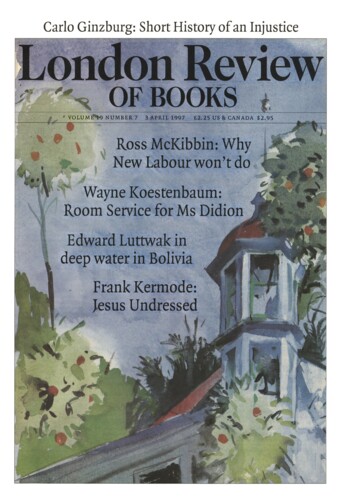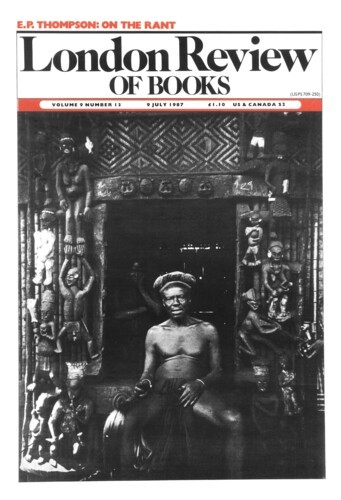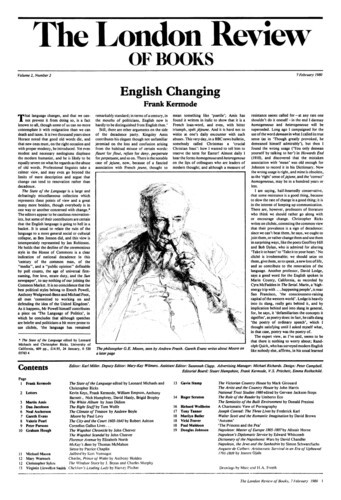Palpitating Stones
Roger Scruton, 3 April 1997
Subtitled ‘On Order in Architecture’, Joseph Rykwert’s exploration of the classical Orders, and their meaning for the many architects who have made use of them, has the shape, size and trimmings of a magnum opus. Footnotes and bibliography take up one third of its six hundred pages, and the text is burdened with photographs, plans and drawings illustrating each period of the classical style. On some pages almost every sentence is fortified by a footnote, and scarcely a paragraph passes without introducing some new writer or architect relevant to the theme. No doubt Rykwert has read even more items than the two thousand or so listed in the bibliography; but I cannot help wishing he had read less. For his theme is of the first importance, and deserves the utmost clarity of argument, and a willingness to come forward with a plain statement, whether or not an authority can be found to back it up. As it is, I was led groaning with redundant knowledge through the maze of Rykwert’s text, no more convinced at the end than along the way that it really has an argument.



